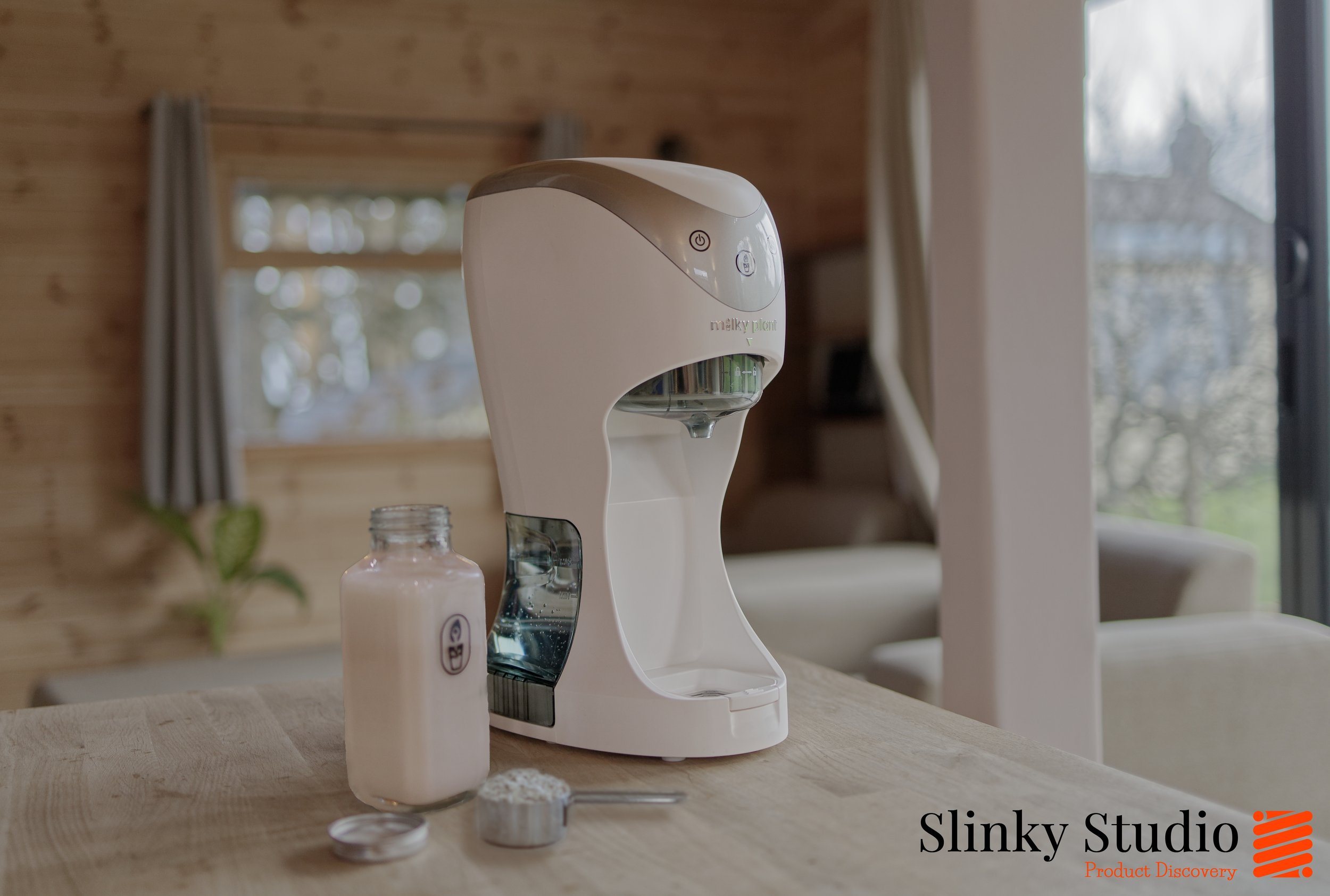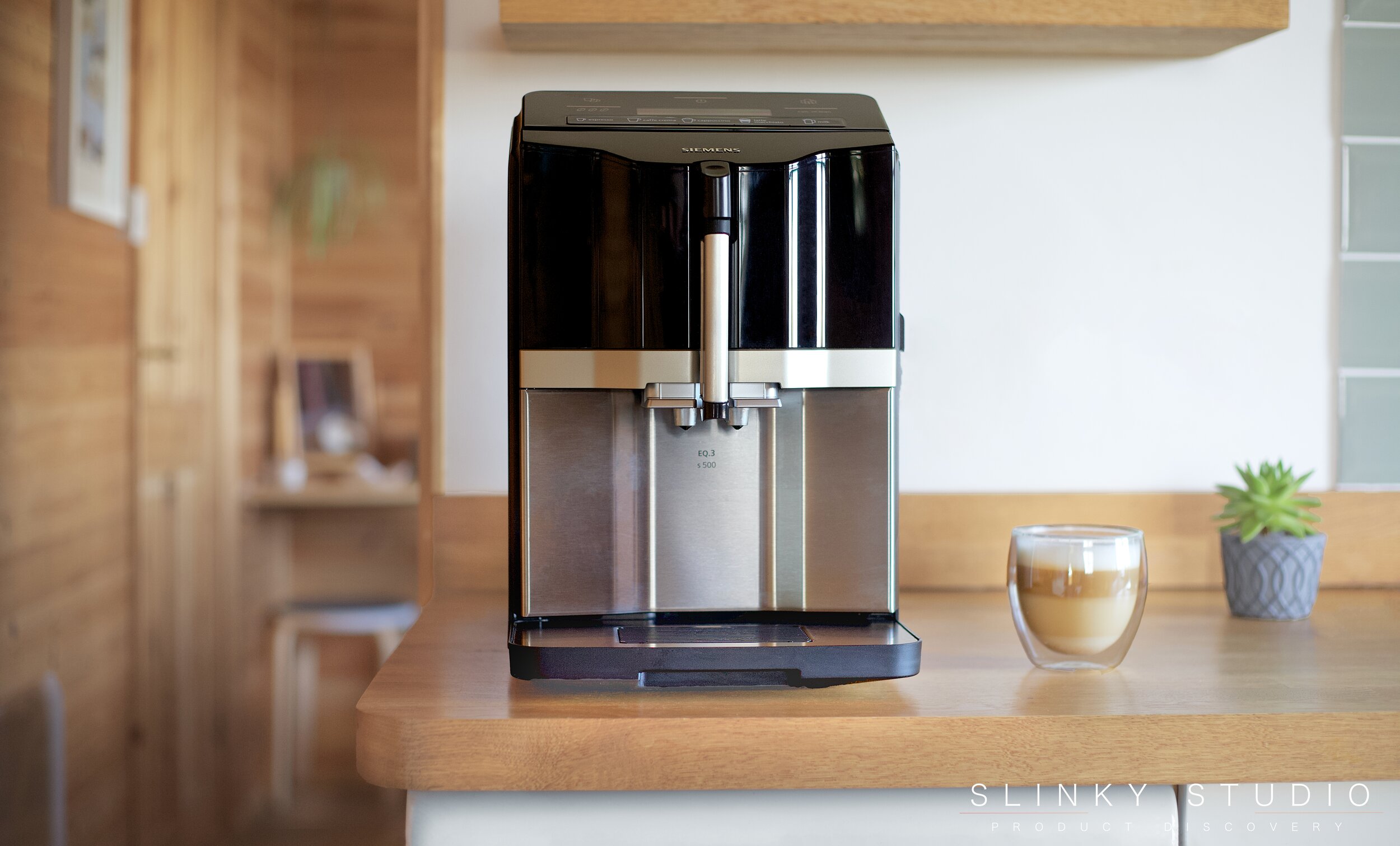Milky Plant Review
Cow's milk no longer dominates, with one in three Britons now drinking plant based milks. However, this market is saturated with a plethora of vegan plant-based milk options derived from various nuts, seeds and grains. Despite the abundance of choices, these alternatives come at a cost, typically priced 30-50% higher than their dairy counterparts. So would it be advantageously cheaper to make it yourself? Well, the Milky Plant is literally dedicated to this purpose and we’ve been exploring its milk-making capabilities, as well as going deeper into its abilities with other general drink making processes.
Design
At first glimpse it reminds us of a SodaStream in its upright design and curvy silhouette which measures 38 x 25 x 15cm. But instead of a carbonator bottle that is revealed when you open the top lid, it’s a blender, and this is where the nuts, seeds or grains can be added. A 600ml water tank is located on the rear of the machine, which simply pulls out from the appliance. Its front features a spout to dispense milks and a drip tray directly underneath. One quirk we have found comes from the three touch sensitive buttons (power, cleaning and milk making functions) used to operate the Milky Plant, as they’re a bit weird, a quick tap doesn’t get it going and instead each requires a few seconds of finger contact to do its thing.

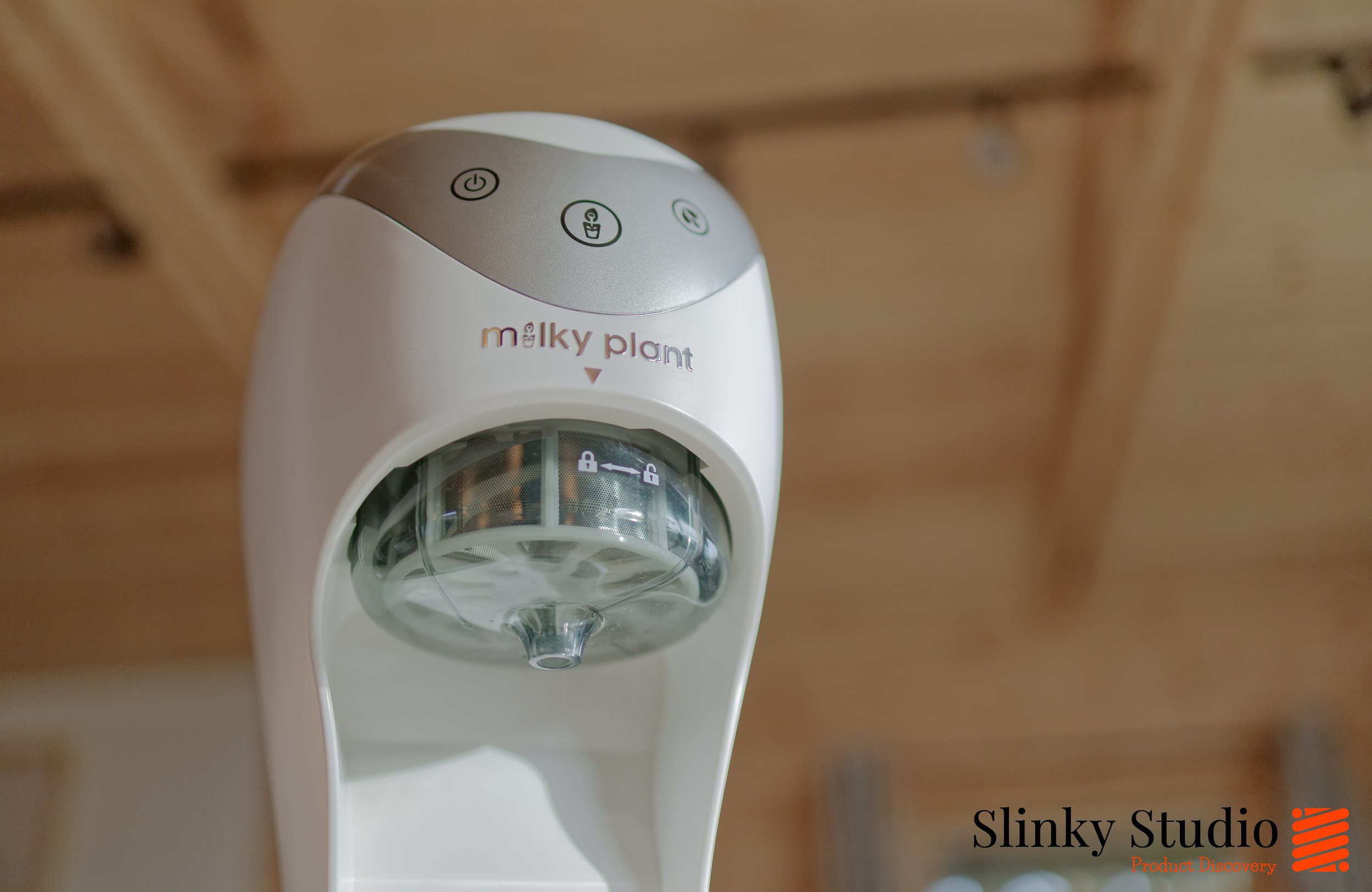
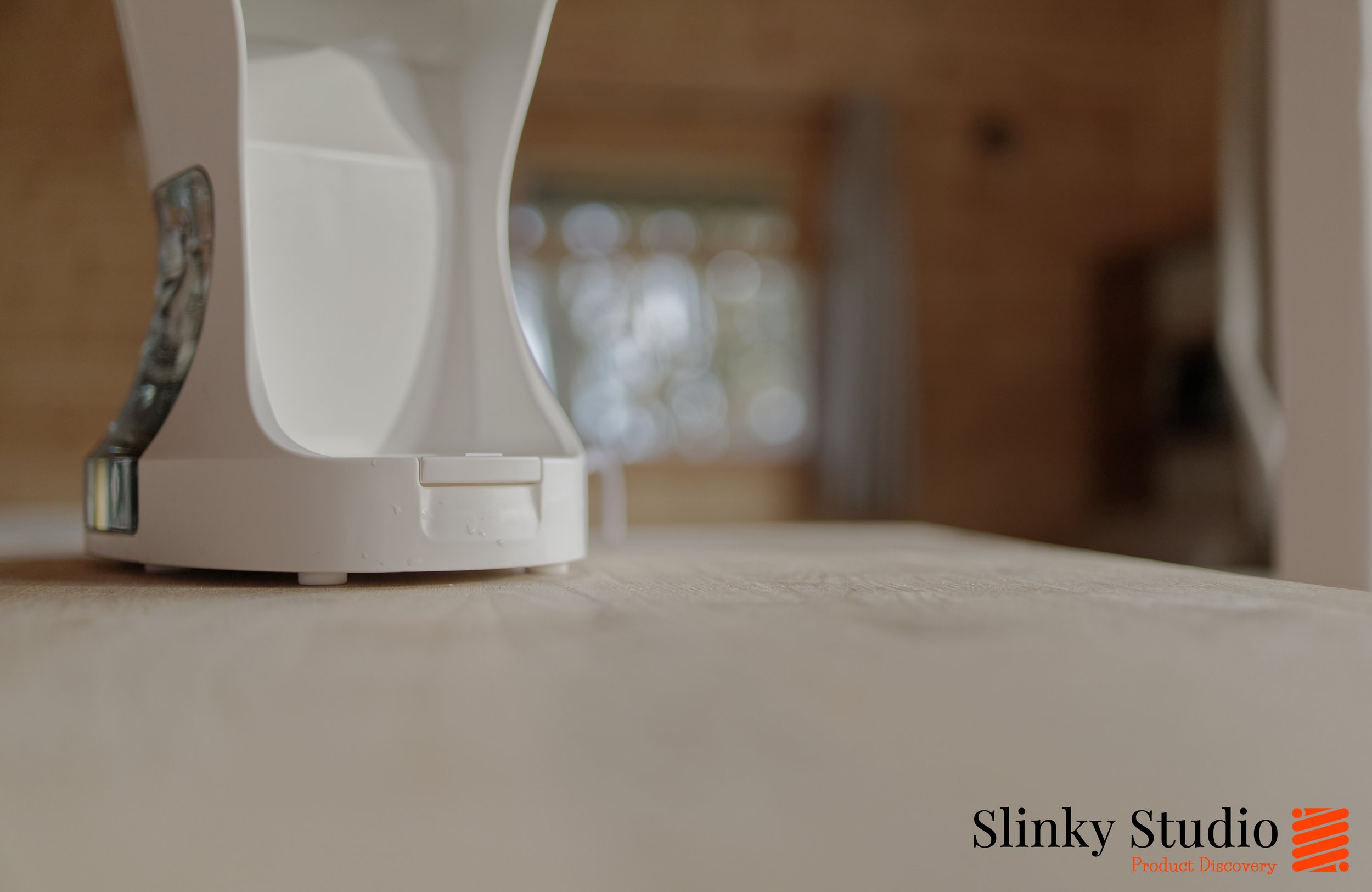
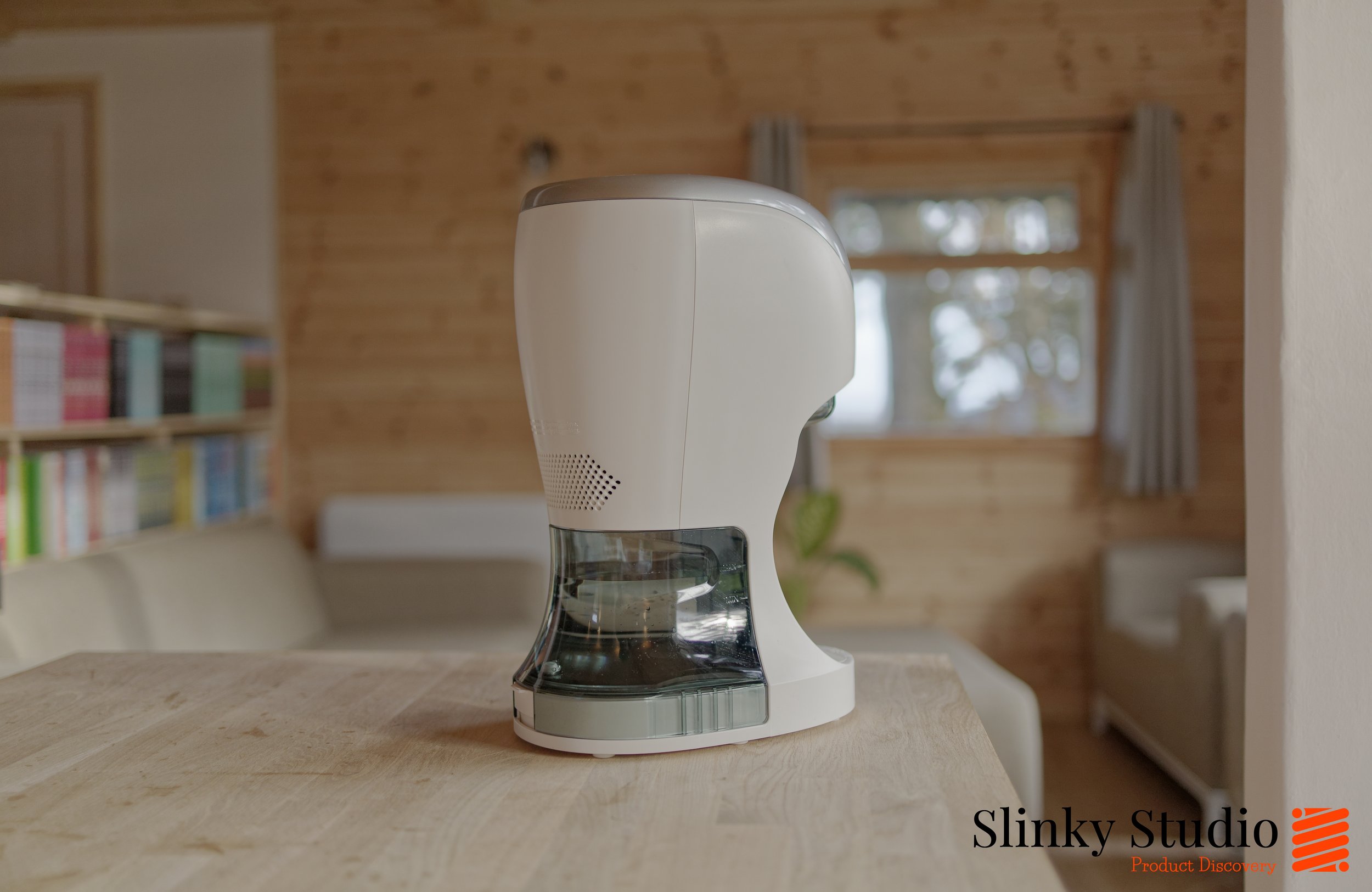
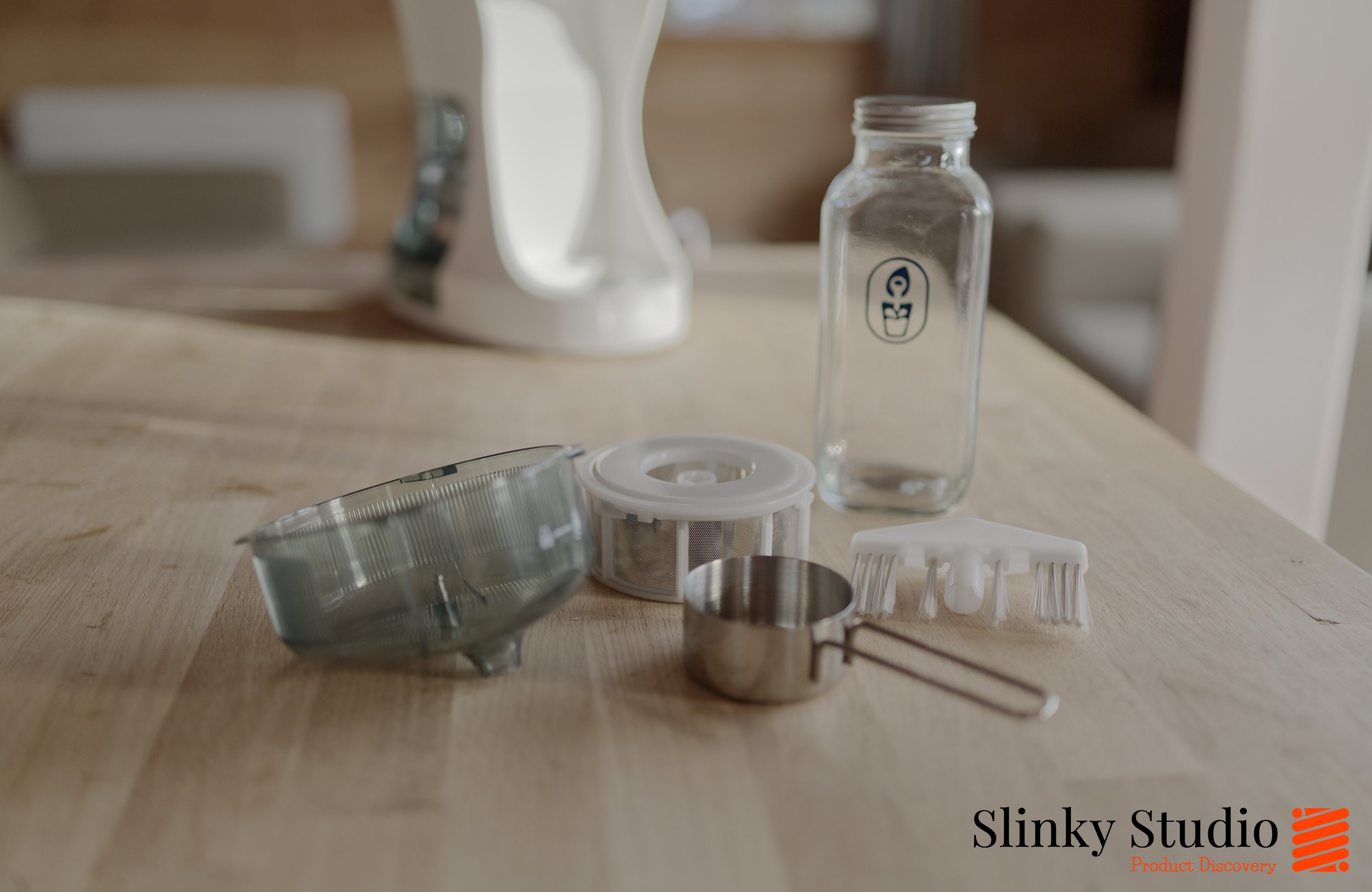
Is it easy to make milk from plants?
Essentially, inside the casing there’s a blender which whizzes and soaks anything you put in there. Then the machine churns it around, pushes this through a filter, and it’s dispensed out of the front to serve 500ml of milk into the supplied and very rustic glass bottle. It is similar in design to a centrifugal juicer, but this has a water tank and is easier to clean. The most arduous part of the process for the user is remembering where you store your oats, as the machine takes care of the process by automating it, meaning it’s very easy to use, even on early mornings when you realise you’re out of milk.
The filter unit is easily twisted off from the machine and this reveals a rounded stainless steel filter sieve inside the BPA free plastic filter cup enclosure from which the spout dispenses the liquid. The sieved pulp from the milk has to be removed from the filter, and as it’s very dry it falls out in a compact circle, either to be composted or, if appropriate, used for a recipe. This filter does need to be washed after every use, however the filter cup enclosure has a nifty trick that makes clean up easier and it earns the accolade of self-clean from all our testing. This is because the machine comes with a cleaning brush accessory that attaches into the cup, and after choosing the cleaning mode it will whizz around and mix water in to effectively lift and remove any residue. It is then ready to be air-dried; and now we wonder if centrifugal styled juicers could do this using a brush on a larger scale?
The process of making plant based milks itself, when done manually, requires a blender anyway, so having the entire process encapsulated into one design is certainly a tidy idea. Even more substantive is that the filter sieve is brilliant, effectively removing any detectable bitty texture from our milk; thus it is always silky smooth and this is of paramount importance.
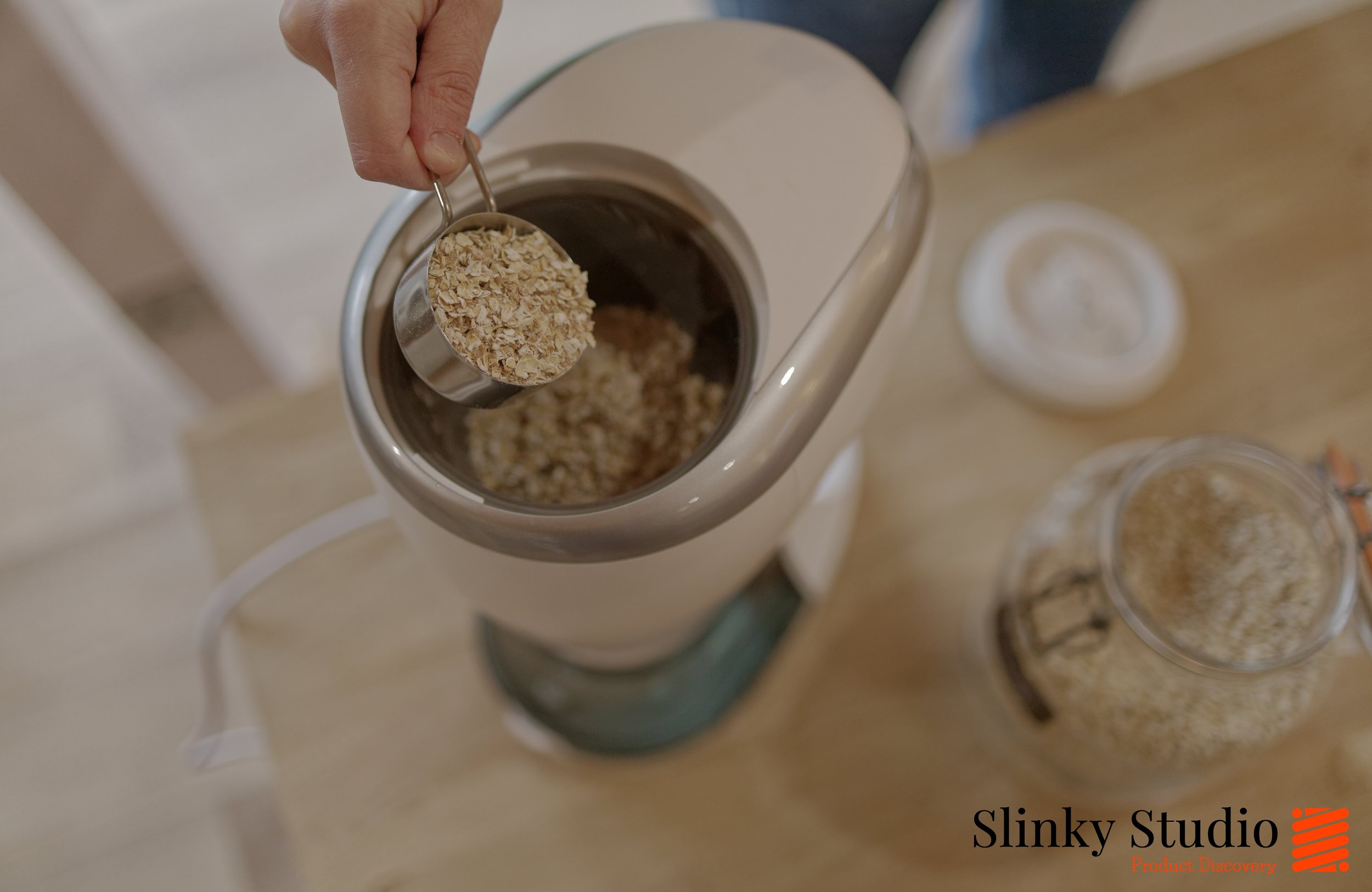
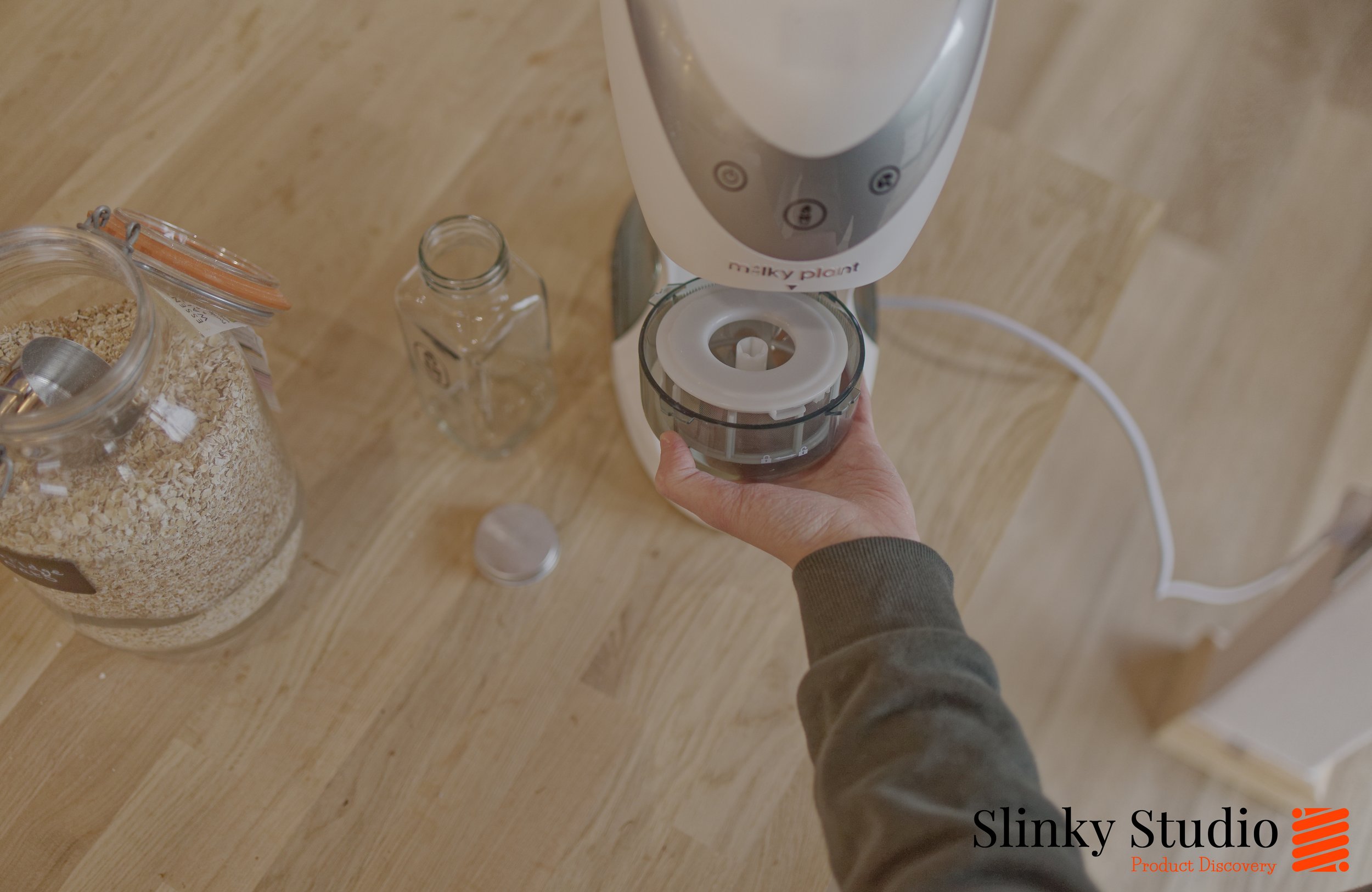
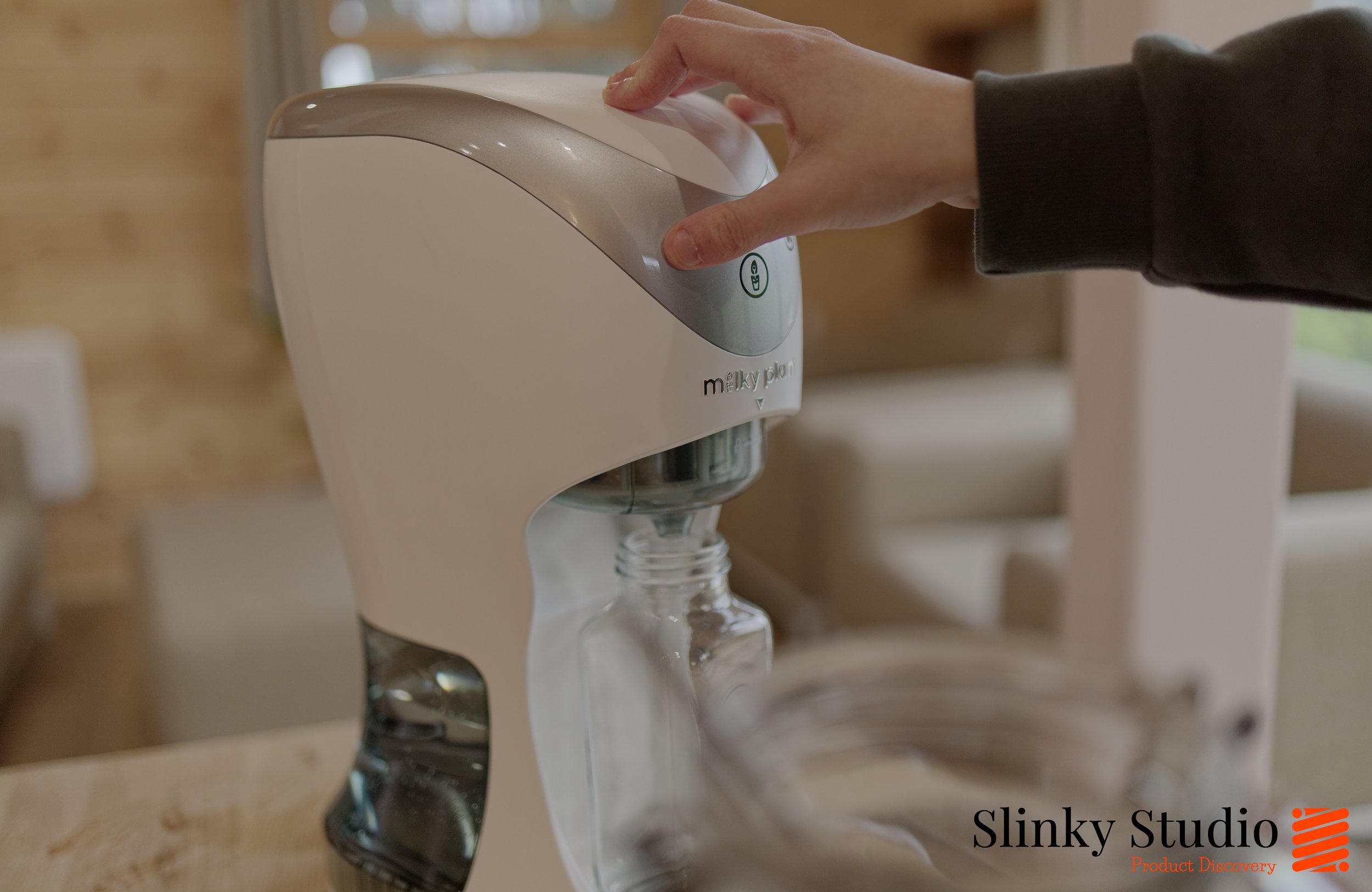
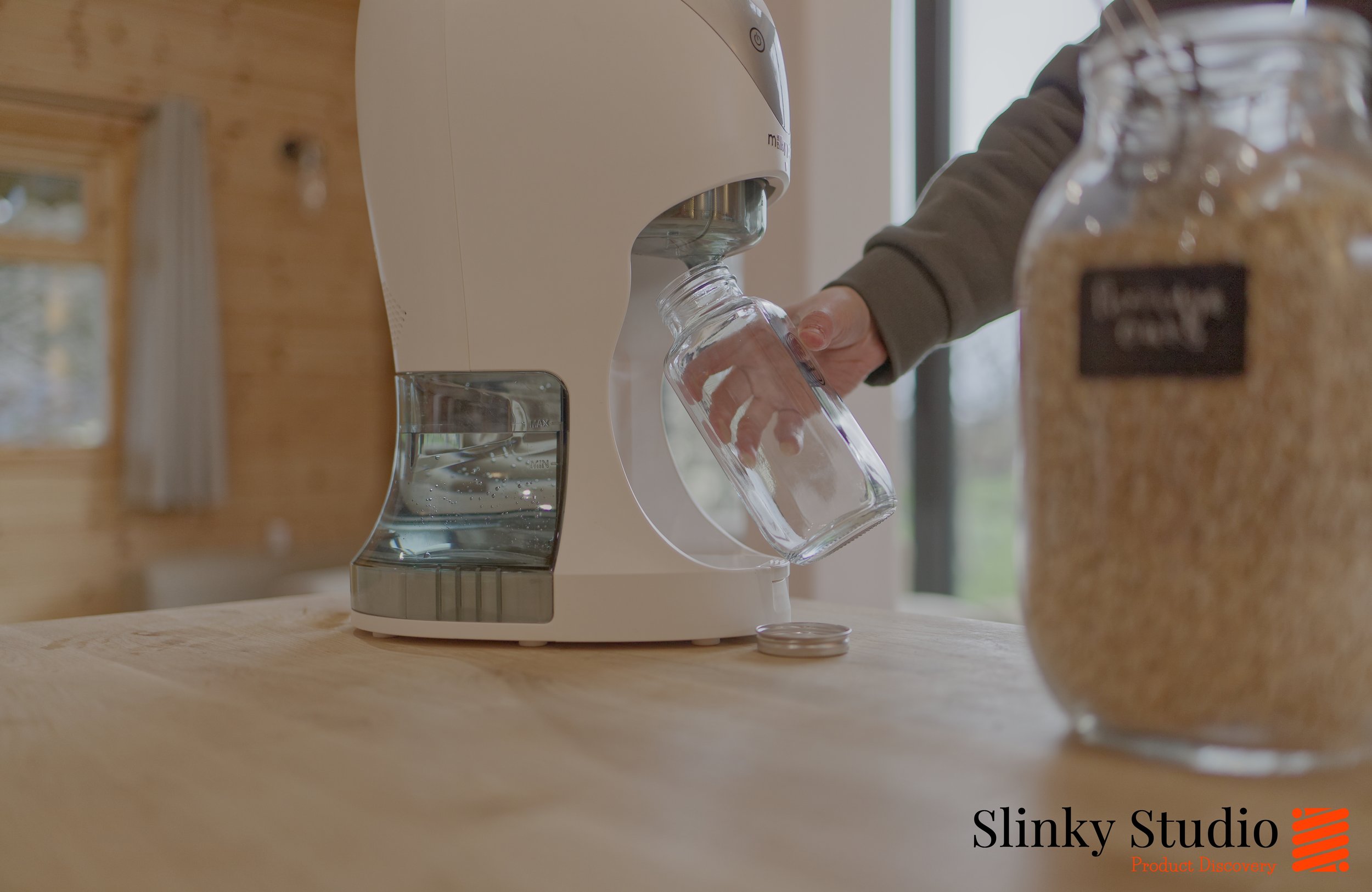
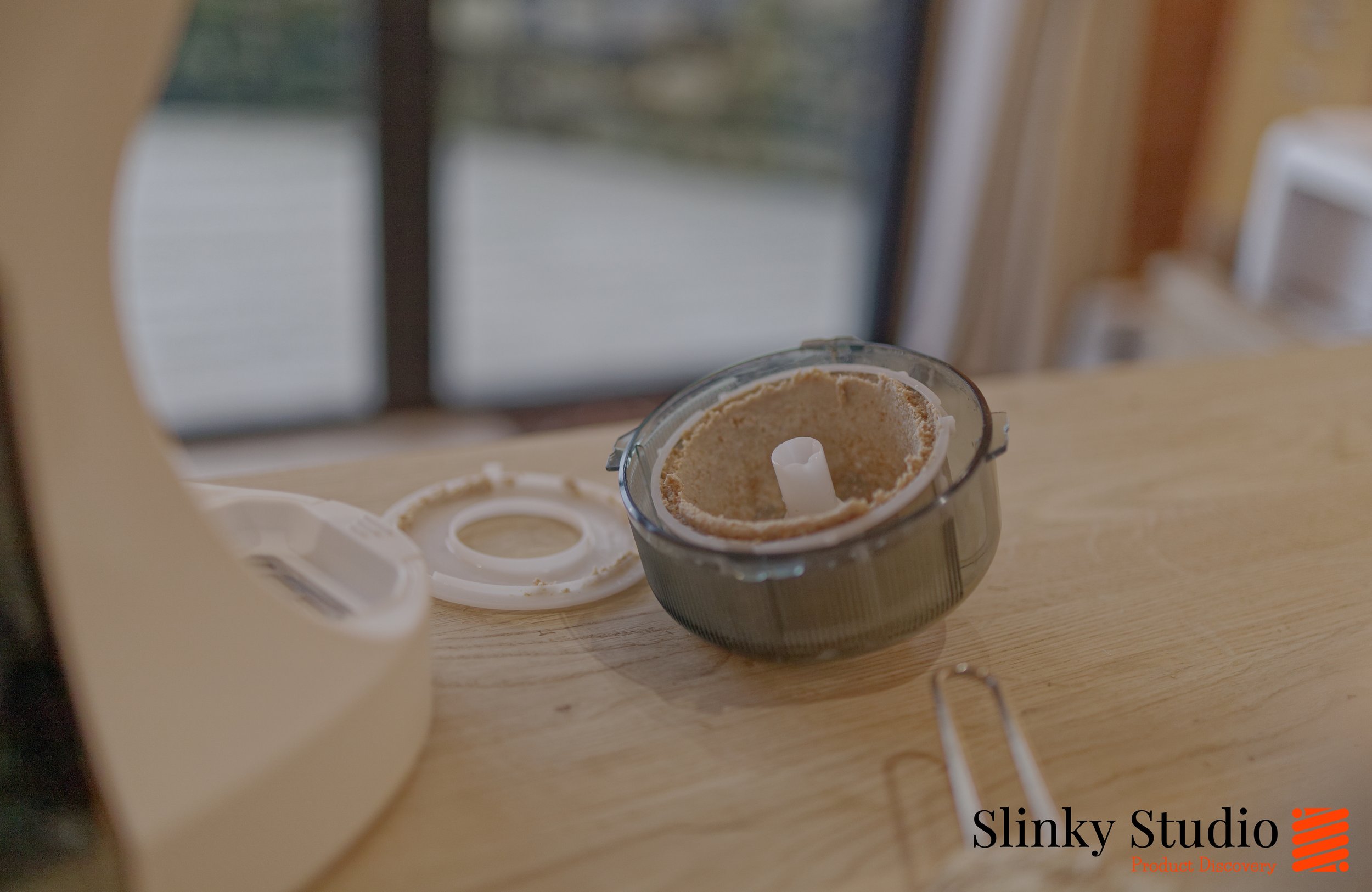
Does it taste good?
Oat milk is our favourite anyway, so it was first on the list to try using the Milky Plant. Entering only one tablespoon of oats and filling the tank with a litre of water, we payed witness to seeing the machine quickly process and dispense what looked and smelt like oat milk in under 3 minutes. Upon first taste it was apparent that it was indeed similar to brands like Oatly, Alpro, Moma and Mighty. But it didn’t have the sweetness, because certain varieties of the products that we buy often have sugar added. For good or for bad, it is certainly nicer with a little sugar or stevia added, and it works to add this with the oats when using the Milky Plant. We’ve also made almond and hazelnut milks, which were divine, and we can use dry nuts, with no need to soak overnight. We’re advised that our milky creations typically last 2-5 days in the fridge.
Economically it quickly dawns on you that plant based milk is almost all water and the raw ingredients going into these milks costs pennies, or so it seems on first impression. We’ll be saving money, and, of course, not to neglect mention of the packaging waste and transport also avoided. There is something missing in these homemade milks, however, and that is the fortification of calcium, iron and vitamins which all the vegan milks we buy have already had added; and the omegas and iron are definitely of significance to vegan diets. Thankfully Milky Plant sell a ‘Fortify Me’ bag of powder to add to milks. It works out at around £1 a litre if you subscribe to the powder and £1.25 if you don’t. It is a little difficult to stomach how much this encroaches on the savings made from making your own milk, but you could instead just use flaxseed to be sure of the calcium and iron, with the rest coming from a balanced diet or a bowl of cereal (we checked, and they are all normally fortified). On a similar theme, they also sell a packet based oat barista milk mix that we would be intrigued to try. It works out at around £1.58 per litre and that's roughly equivalent, if not a bit cheaper, than most 1 litre barista milks we use.
Diverting away from milks we experimented making some of the recipes suggested on the Milky Plant website. Whilst we like the novelty flavour of the carrot cake milk, our standout has to be the hot lemonade which was delicious. Using ginger, lemons and maple syrup heated in a pan after being dispensed from the Milky Plant, it's a refreshingly comforting drink in these chillier winter evenings.
Verdict
Milky Plant is a novel idea that succeeds in making silky smooth and tasty fresh plant based milks from nuts, seeds and grains. Maintenance is minimal, with the plastic filter unit housing being self-cleaning and only a rinse of the filter itself needed. Its by-product of dried pulp could be useful for recipes too. Despite its initial cost, the potential for long-term savings is apparent, although considerations for fortification may be necessary, which could eat into those savings. Beyond milk, the Milky Plant opens doors to culinary experimentation, offering a range of delightful recipes to explore.

